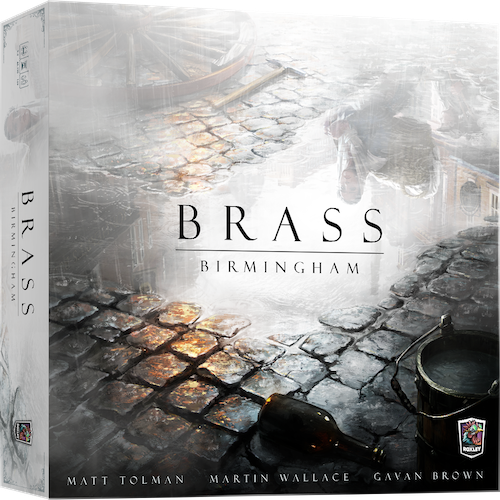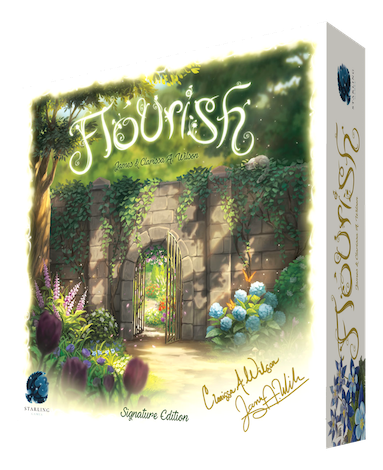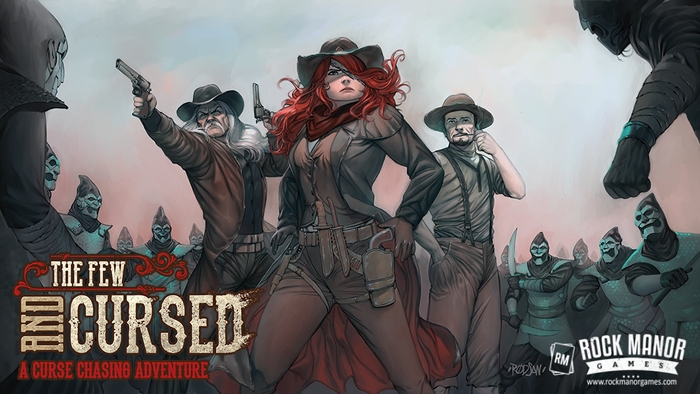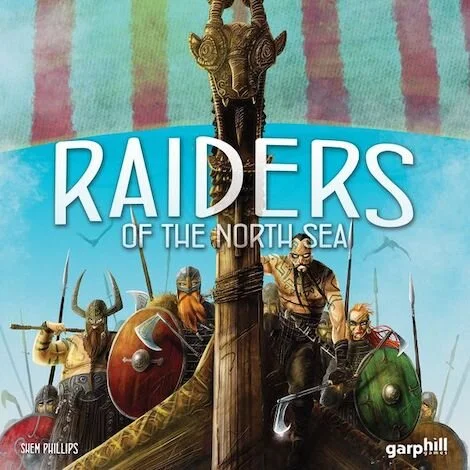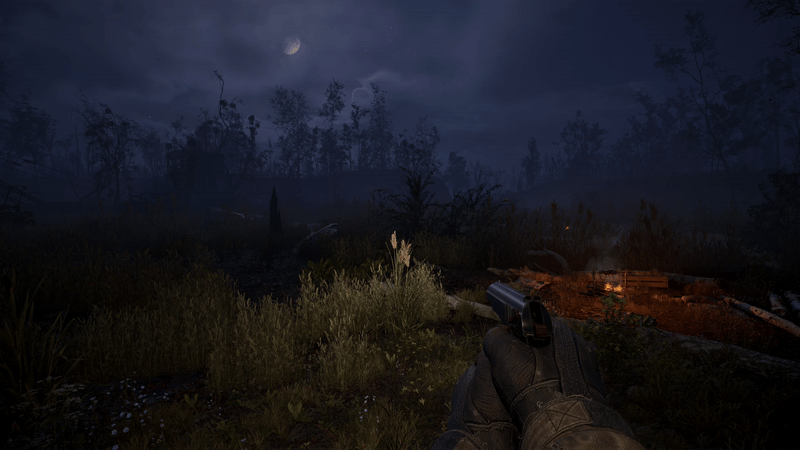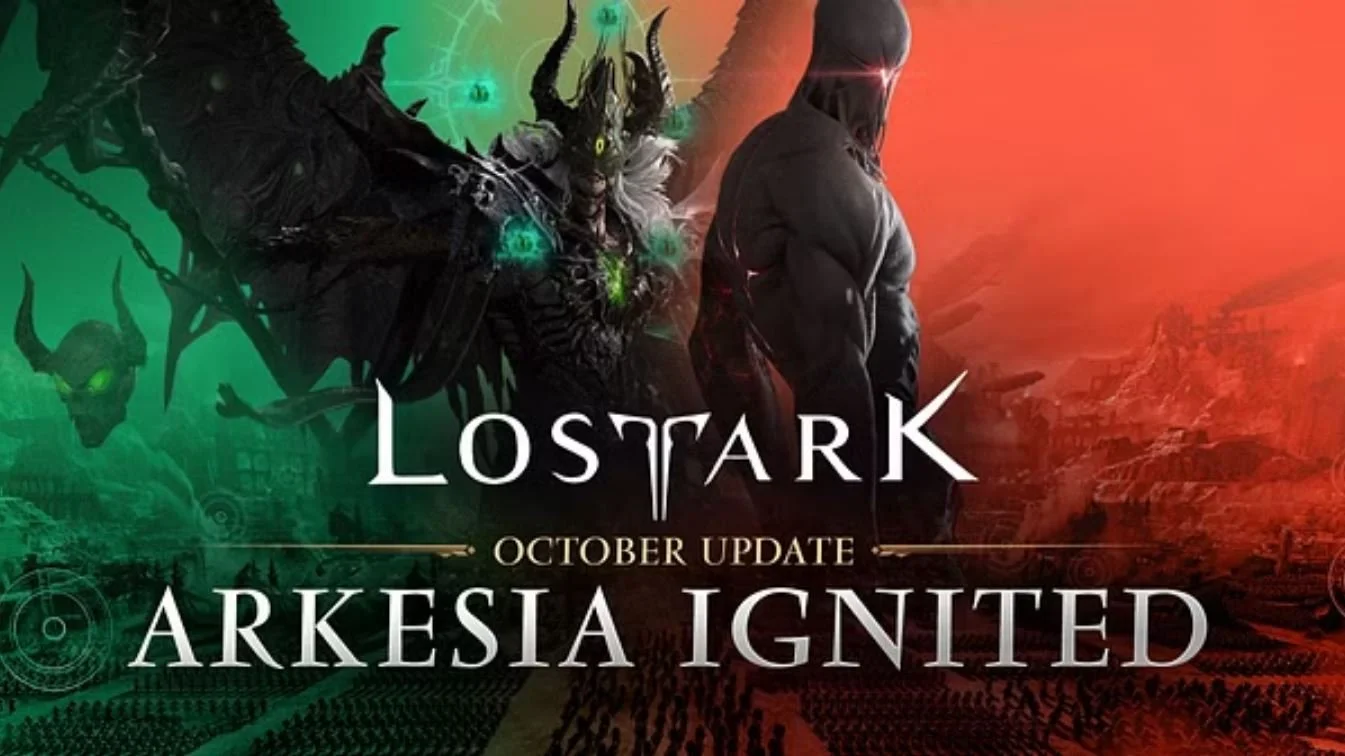Review copy provided by Roxley Games
Just a little bit ago, I talked about Brass: Birmingham and explored what made the game so great. It’s highly-popular and it’s one of the top-rated board games of all time.
But that game—designed through the teamwork of Martin Wallace and his collaborators Gavan Brown and Matt Tolman—wouldn’t be possible without its predecessor. Brass: Lancashire, formerly published as just Brass, is the intricate and charming economic game that started it all. In 2008, this wily devil captivated tabletop gamers across the world and struck a chord with players who treasure strategy and well-adapted plans.
Then, it was reheated in the forges of game design and molded into a new form, one that visually impresses while streamlining what made Brass so great. It’s better looking and it plays smoothly as the refinement process hammered out some of the kinks.
While I prefer Birmingham overall, Lancashire is still a game that transfixes and delights me, and I wouldn’t turn down the opportunity to get my hands dirty in the canal-drenched, coal-clogged world of the Industrial Revolution when men and women of industry turned an opportunity into profit.
It’s a game that forces players to consider how to take advantage of their own infrastructure while utilizing those of their peers when necessary. It’s smart. With the Deluxe Edition, it’s wonderfully tactile. And it’s, at its core, the Brass that Martin Wallace envisioned for the tabletop community.
Let’s dive in.
STORY
If you didn’t get it from the name, the game takes place in Lancashire, located in England. That’s a couple of hours north of Birmingham, the setting for the more recent implementation of Wallace’s economic game.
The characters in the narrative, though, remain the same—men and women who lived during the hundred years between 1770 and 1870. A time of technological advancement, when canals and barges gave way to rail links and trains, it’s a time ripe for profit and growth. Empires in cotton, coal, iron, and shipping are all within reach if the entrepreneurs have the foresight to invest at the right times in the right places. They will land somewhere between financial ruin and economic prosperity.
It’s up to the players to decide who will end up where.
GAMEPLAY
Just like I mentioned in my review of its sister-game, Brass: Lancashire is a competitive game with medium to heavy strategy weight for players who are looking to get their brain crunching numbers. It plays fairly fast, with a timeframe of one to two hours for the designated two to four players. It looks like it would take longer, but it’s not a marathon-game that you’ll need to take a break from to stretch your muscles and rest your eyes.
Hand management is more important than ever because you don’t have Wild Industry and Location cards to save you. Network-building is as vital as before, but it comes with the knowledge that you must develop a foothold in the key areas of the map, especially to not be closed out in the Rail Era when a player can building multiple Industries in one city.
Through the Canal and Rail Eras, players in Brass: Lancashire will have to balance financial stability with explosive growth. Selling anything requires infrastructure, and that can be costly, especially in the Rail Era when everything runs on coal. demands that players aim to accrue substantial income values and high victory point totals in order to win the game. Fight for the best position on the board while using resources as efficiently as possible because the highest victory point total wins after two Eras of eight to ten rounds.
Whereas Birmingham provided more options, offering a welcoming lower tier of play for newcomers and a challenging high tier of potential for experienced players, Lancashire is more linear. It’s more cut and dry. You either make the most of what you’ve got or you don’t. Those with the right know-how and the right mental picture of the state of play can navigate it and create a viable business for their entrepreneurial avatar. Others may flounder. But there exists a wonderful web of actions—core to Brass gameplay—that is so addictive.
It’s about Selling at the right moment, closing off another player to a crucial city, Developing the right Industries to make way for high-scoring, high-Income tiles. It’s how Brass: Lancashire becomes a delicious brew of board game magic. If you make the right moves, you’re rewarding with this deeply satisfying network of Industries. Not to mention a graceful slide around the Progress Track. But even if you don’t make the right moves, it just incentivizes you to try again. Do better next time.
The depth of the game expands between both eras, establishing a two-tier experience that’s up to the players’ choice.
I can see everything that I loved about Brass: Birmingham in some form here. There are the tight mechanics, the historically-dense and engaging theme, as well as this special sauce that covers the whole thing like nacho cheese on tortilla chips.
Twelve years ago, Martin Wallace released Brass. This iteration, however, is the ultimate form. It’s the end of the rail line of a journey that started over a decade ago. Like Tony Stark emerging from the cave a new man and a certified superhero, Brass: Lancashire rises from the ashes of its predecessor stronger than ever.
VISUALS
My, oh my, this game just leaps off the board. The art is distinct. The map is gorgeous. The two-sided board is a treat. In the Deluxe Edition, at least, the Iron Clays have a heft that is wonderful to be-hold. Everything that Roxley Games and the attributed artists set out to do was accomplished in grand fashion. This is how games should be re-introduced to their fans.
Brass: Lancashire is the kind of game that you bring out to show your friends just as much as to play. It’s been updated in every conceivable way to draw attention to the board without sacrificing legibility. It’s eye candy.
From an organizational standpoint, Lancashire is also a smashing success. The box insert keeps all of the cards and components separated and easily accessible for game setup and the rulebook, like everything I’ve reviewed from Roxley Games, is clear, concise, and without blemish. It’s easy to understand the game and it’s easy to teach whenever these aspects of the game are so well produced.
It’s also nice to take the box top off and start playing.
REPLAYABILITY
So this is where I think Birmingham edges out Lancashire.
I really like Brass: Lancashire, but the Distant Cotton Market and the lack of Merchant Tiles create a more narrow gameplay experience. There won’t be pushes toward different parts of the map as the variable setup builds appealing networks of cities and infrastructure. The same Ports, the same Shipyards, and the same connection points to the Distant Cotton Market will keep players anchored to specific locales. The thing that changes are the cards that players will possess, as well as the player count that dictates what locations and cards are part of the overall deck.
The Scout Action—which provided Wild Industry and Wild Location cards—and the Merchant Tiles with different Industry icons both served to spice up the game before it even started. There’s also the titillating possibility of opening up a network away from where the cards allow, even in the hard-to-access northern cities during low player counts.
Lancashire, by itself, would be an immensely replayable game solely on the strength of its design. If you’re interested in the original, the economic forebear, the classic, then by all means you will find a lot to love with this game and will find it very easy to return to the table. In comparison to Birmingham, though, I do find it a bit lacking.
WHAT IT COULD HAVE DONE BETTER
This is an unusual instance of playing a new version of a game that is reimplemented by another recent release with similar core mechanics and several defining characteristics to distinguish the two.
But that’s a really mouthy way of saying that Lancashire and Birmingham are two siblings in the same Brass family, with a visually-deteriorated (one could say old) looking patriarch that brought these two beautiful creatures into the world. Just like a parent has a favorite child, I have a favorite Brass game that largely fixes some of the complaints I have about Lancashire.
Those aren’t really things that make me enjoy Lancashire less, though. With many games that I play, I wish for a reworked version with the full knowledge that I will likely never get it. That’s not the case here. Tabletop gamers are blessed with two translations of the same economic story. The players decide which one they want to experience.
So, yes, Brass: Lancashire is a little unforgiving in a way that I think can alienate some gamers. The strict adherence to Cotton Mills, Ports, and the Distant Cotton Market constrict the gameplay in a way that I didn’t feel with the variable Merchant Tiles and other available industries in Brass: Birmingham. With more rules, though, comes more potential for complexities that players have to consider while gaming.
Some in the tabletop community feel that Lancashire is the purer of the two games. I get that. I recognize the appeal there. It’s a tighter game.
Even so, I miss the beer. I miss the Scout Action. I miss the leniency offered by the slightly-tweaked mechanics. Don’t worry, though. Unlike most reviews, I can simply say that if you are unsure about the strengths of Lancashire, then Birmingham exists to soothe your fears and still your beating heart.
VERDICT
The high replayability in Brass: Birmingham leaves me itching for that experience more, but that does little to undermine the value in Brass: Lancashire. In my review for the other version of this economic masterpiece, I described it as the enhanced Mark 85 Iron Man armor, praising how well the developers did on updating a modern classic with even more mechanical marvel.
If that’s the case, though, then Brass: Lancashire is still what makes Iron Man more than a “genius, billionaire, playboy, philanthropist,” albeit a younger or less nuanced version. But this is still a damn Avenger-level game. That’s worth noting because I don’t want to dissuade anyone from playing this game with a simple compare/contrast piece.
Yes, sadly, this game doesn’t feature beer. And the economy isn’t as wide-ranging or forgiving, but it’s still such a good economic game. The medium-to-heavy strategy weight rests nicely on your shoulders, like a weighted blanket from the board game gods.
If you haven’t played Brass yet, then you need to. If you like tabletop games, then it deserves your time and attention. And the visual rework from Roxley Games cannot be understated. It’s like the before-and-after reveals from Queer Eye. Just beautiful.








